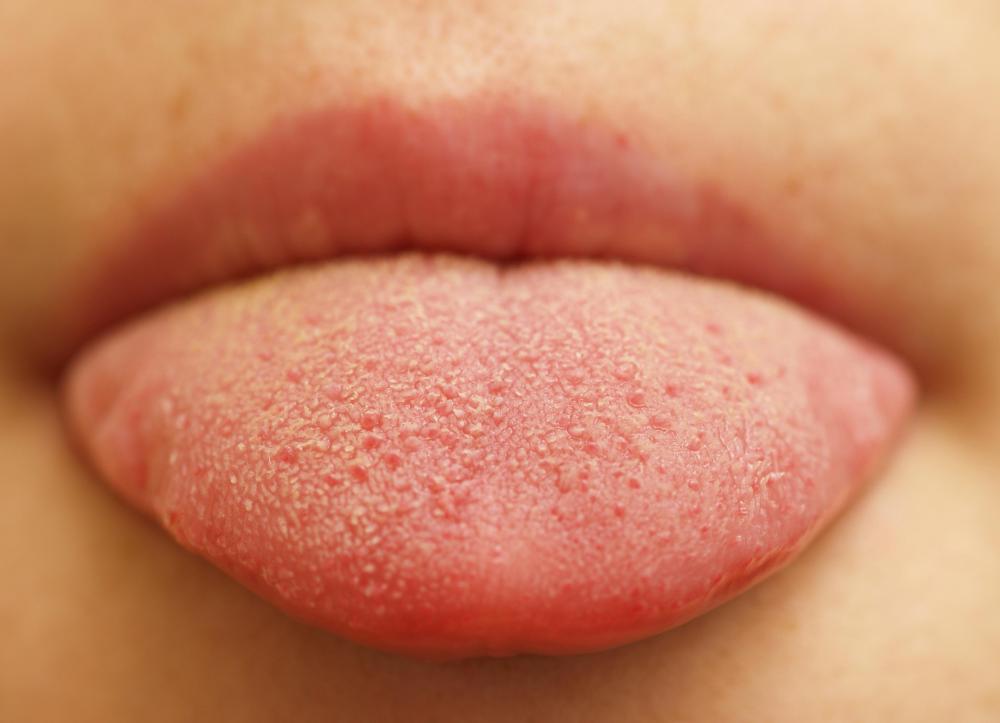At TheHealthBoard, we're committed to delivering accurate, trustworthy information. Our expert-authored content is rigorously fact-checked and sourced from credible authorities. Discover how we uphold the highest standards in providing you with reliable knowledge.
What Are the Benefits of Chewing Betel Nut?
Betel nut is a substance chewed by millions of people around the world. Traditionally, betel nut was thought to be beneficial to oral hygiene, appetite and saliva production. Scientists now know that chewing betel nut increases the risk of cancers of the mouth and the esophagus, and that it can adversely affect the health of children in the womb. Although there are several potentially useful aspects of betel nut, most experts agree that the risks make the substance unhealthy.
Despite the name "betel nut," the substance that people chew in many areas of the world is usually a mixture of two plant items and lime minerals. The nut portion is the areca nut, which comes from the palm tree Areca catechu. Sometimes, the nut and lime is contained inside a wrapping of leaves from the betel vine, Piper betel. In other preparations all the ingredients are mixed together as powder.

Often, the betel nut is consumed with tobacco in a product called gutka. Other flavorings like cloves, sugars or cardamom are optional. Although people who like chewing betel nut may make their own product, commercial forms are also available. Commonly, chewing betel nut results in high saliva production, and the chewers either swallow the extra saliva or spit it out.

People who like chewing betel say that the substance produces a relaxing or stimulating effect. Betel nut may also impart an increased sense of being alert and a euphoric feeling. In this way, betel has similarities with caffeine and tobacco, both substances that are widely used globally.
Some research indicates that betel nut use may alleviate some of the symptoms of schizophrenia, but not enough evidence, as of 2011, is available to make this more than a possibility. Other areas of medicine where the substance may provide small benefits include recovery from stroke and the intestinal condition ulcerative colitis, although not enough evidence exists to prove this. The nut is believed to have slightly beneficial effects on the prevention of tooth cavities.

Even though betel nut can have noticeable desirable biological effects on the human body, the serious risks of the nut must also be taken into account. Chewing betel nut can cause cancers of the mouth, pharynx and esophagus. Before cancer develops, the person using betel nut can suffer from severe mouth problems to the extent where the mouth cannot open. In addition, pregnant women who use betel nut can slow the growth of their baby so it may be born underweight.
AS FEATURED ON:
AS FEATURED ON:














Discussion Comments
There are two types of betel nut, one is consuming after drying and other is raw. I know that raw one is very harmful, but the dry one is perfectly safe. Dry betel nut improves gum and eliminates bad breath.
@fBoyle-- Betel nut without tobacco also eats away at the teeth and gums. It's also bad for the environment because people tend to chew it and then spit the red remains on the ground.
I tried betel nut for the first time in Africa. It's a very interesting nut. If it hadn't been ground into a fine grain, it would be impossible to chew.
Anyway, the first time I had it, I had a weird cold with a sore throat and slight coughing. After I had the betel nut, my throat felt a lot better! It seemed to reduce my headache too. I'm not sure how but it just made me feel better in general.
Betel nut chewing is very prevalent in India. I have family from there and have visited several times. Betel nut is served in the betel leaf with lots of other ingredients inside in India and is called paan.
My family members also chew paan, mostly after dinner but they chew the type without tobacco in it. The one with tobacco is unhealthy obviously and I think this is they type of paan that's responsible for oral cancer. But paan which just has betel nut, calcium carbonate and spices is not dangerous for health, at least not if you have it in moderation. In fact, my grandmother says that it's good for bad breath and upset stomach.
The only possible downside to paan is that it stains the mouth and teeth. And people who have it regularly can have permanently stained teeth.
Post your comments